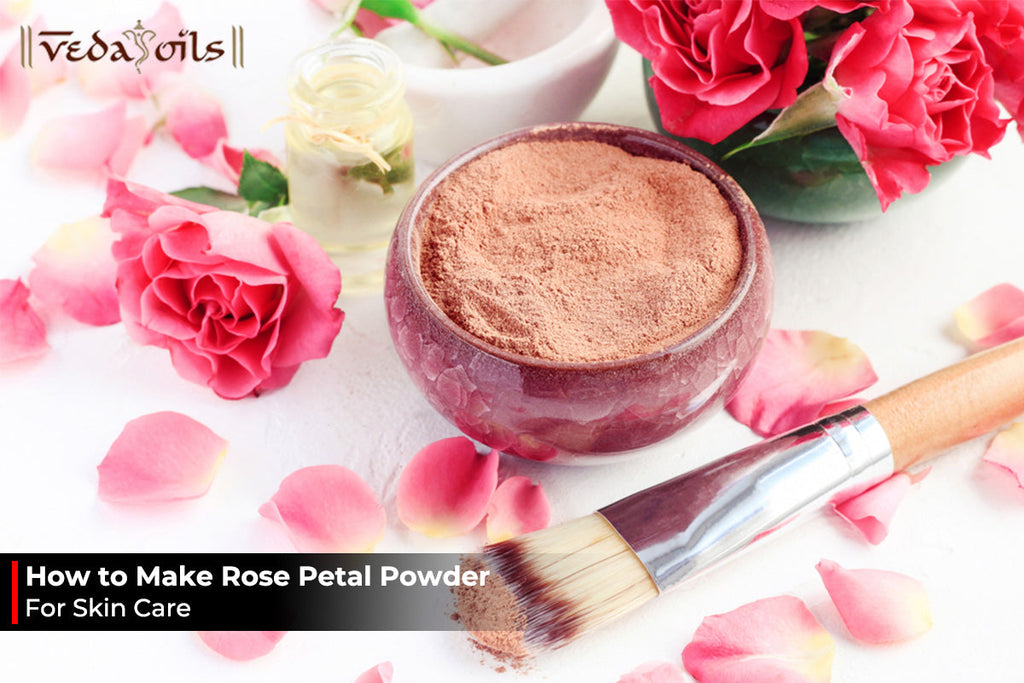How To Make Charcoal Bath Salts at Home
Who doesn't like the feeling of relaxing in hot bath water after a long, tiring day, letting the water soak our body and take away pain and discomfort? A warm water bath session is the best time to collect your thoughts as well. You can enhance your bathing experience with a simple homemade ingredient: charcoal bath salt.

Activated charcoal-infused DIY charcoal bath salt can pull toxins from your skin; it will work wonders to fight off acne-causing bacteria. This magic magnet will help with red impurities, reduce inflammation, and keep your pores clean and clear while you soak and relax! Salty charcoal bath water will reduce your muscle pain and refresh your mood.
Benefits Of Charcoal Bath Salts
Charcoal can draw out excess oil and impurities from your skin, while Epsom salt and essential oils in charcoal bath salt relax tense muscles and pain while offering a soothing mood. Charcoal bath salt possesses countless aroma therapeutic, pain-relieving, and skin-caring properties. Let's see five of the benefits of charcoal bath salt.
1. Detoxification
The best quality of activated charcoal in DIY bath salt is its ability to draw out impurities and toxins from the skin.

The warm water infused with charcoal bath salt is simply amazing in detoxifying your skin by unclogging pores and removing dirt, sebum, and other pollutants you attract the whole day that accumulate on your skin's surface, making you dull and lifeless.
2. Exfoliation
You can make your skin feel smoother and brighter by simply laying down in warm charcoal bath salt water.
Charcoal bath salts are made of natural oil, Epsom salt and charcoal, which are all amazing in gentle exfoliation, helping you to slough off dead skin cells and promote collagen production.
3. Skin Purification
Dirty, sweaty skin can lead to skin irritation and redness, and activated charcoal-infused charcoal bath salt has natural antibacterial and antimicrobial properties.

These properties reduce the risk of skin breakouts and infections while cleansing your skin. Your skin's natural sebum can clog your pores and irritate your skin, and homemade charcoal bath salts contribute to clearer, healthier skin.
4. Relief from Skin Conditions
As we have mentioned above, charcoal infused bath salt has antibacterial and antimicrobial properties which soothe inflammation and irritation caused by acne, eczema and psoriasis.
Charcoal bath salt can help in relieving many skin conditions, such as acne breakout, eczema, and psoriasis. Homemade charcoal bath salts can detoxify and purify properties, which improve overall skin care.
5. Aromatherapy Benefits
Many charcoal bath salts are infused with many essential oils (you could add whichever essential oil you like)... and their alluring aroma can enhance your bathing experience and promote relaxation.

A charcoal bath salts' warm water bath not only relaxes your muscles and improves your skin but also offers aroma therapeutic benefits. The combination of detoxification and aromatherapy can help relieve stress and improve your sleep and overall well-being.
DIY Charcoal Bath Salts Recipe - Step By Step
Charcoal bath salts are super relaxing and skin soothing and, above all, easy to make at home with only a few ingredients. The natural ingredients in this recipe can improve your mood, relieve skin issues, exfoliate and detoxify your skin. Let's see how to make and use DIY charcoal bath salts.
Ingredient
- Epsom Salt - 4 Cups
- Activated Charcoal - 3 Teaspoons
- Melted Coconut Oil - 1-2 Tablespoons
- Lavender Essential Oil - 10 Drops
- Lemon Essential Oil - 5 Drops
- Grapefruit Essential Oil - 5 Drops
Directions
Step 1: In a large mixing basin, combine the melted coconut oil and your preferred carrier oil.

Step 2: Next, add the essential oils and whisk to combine.
Step 3: Add coarse sea salt or Epsom salt and mix until evenly covered. The following are the fundamental methods for producing most bath salts.
Step 4: Next, add the activated charcoal, one teaspoon at a time, and sprinkle the contents on top.
Step 5: Stir between each teaspoon to achieve the desired hue. VedaOils recommends 2-3 teaspoons, but you can add more if desired!
Step 6: Transfer the completed bath salt to a mason jar and keep it in a cool, dark area.
How To Use
Here's how to make a bath using homemade peppermint bath salts..
Step 1: For a standard-sized bathtub, add 1/3 to 1/2 cup bath salt.

Step 2: Pour the homemade bath salt into warm, running water and agitate with your hand to assist the crystals dissolve.
Step 3: Soak in the tub for 15–20 minutes.
Conclusion
The concept is that sea salt pulls toxins from the body, and activated charcoal subsequently binds them. Prepare this dish using only high-quality natural ingredients. Visit www.VedaOils.com to receive discounts on high-quality Epsom salt, essential, and carrier oils.
This 5-minute easy-activated charcoal bath will leave you radiant and relaxed. A charcoal salt bath is great for relaxing and relieving stress, detoxing, and soothing tight muscles. This recipe for activated charcoal bath salts is intended to be used in a hot bath to relax and rejuvenate your body as you bathe.
You May Also Like:
Buy Products
-
 Activated Charcoal Powder (Coconut Shell)
Activated Charcoal Powder (Coconut Shell) -
 Alpha Ionone
Alpha Ionone -
 ALPHOX-200
ALPHOX-200 -
 Grapefruit Essential Oil
Grapefruit Essential Oil -
 Lemon Essential Oil
Lemon Essential Oil
Related Articles
-
 How to Make Marble Candles | DIY Marble Pillar Candle
How to Make Marble Candles | DIY Marble Pillar Candle -
 DIY Tanning Oil - Best Homemade Recipes For Tan Removal
DIY Tanning Oil - Best Homemade Recipes For Tan Removal -
 Homemade Mustache Wax: Best DIY Recipe With Natural Ingredients
Homemade Mustache Wax: Best DIY Recipe With Natural Ingredients -
 Kojic Acid vs. Glycolic Acid: Which Is Better for Skin Whitening?
Kojic Acid vs. Glycolic Acid: Which Is Better for Skin Whitening? -
 5 Best Grades of Essential Oils - The Grading System
5 Best Grades of Essential Oils - The Grading System -
 How to Make Rose Petal Powder For Skin Care Homemade Recipe
How to Make Rose Petal Powder For Skin Care Homemade Recipe
Disclaimer :- This article is intended for informational and educational purposes only and should not be considered a substitute for professional medical advice. For specific health concerns or treatment, please consult your personal physician. The article's editor, writer, and VedaOils organization do not assume any responsibility for any health outcomes resulting from the information provided. Readers are strongly encouraged to seek advice from their physician before acting on any recommendations made in these articles.
















 Sign in
Sign in Register now
Register now My Reward Points
My Reward Points









